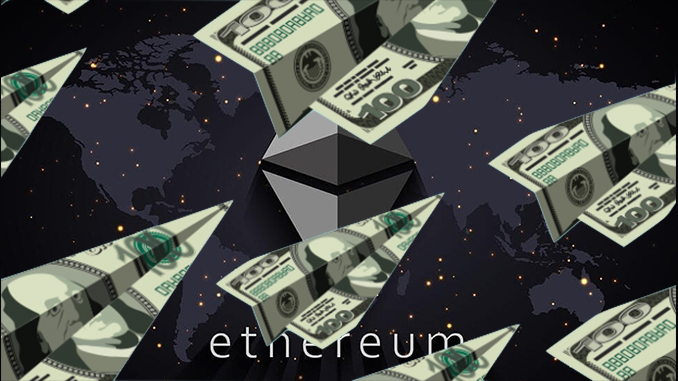
For days, the cryptoscene has been puzzling over who was so unfortunate as to pay fees of the equivalent of more than 5 million US dollars for two small transfers to Ethereum (ETH). Has the mystery been solved?
Do you have popcorn at hand? Because the update of the story by twice paying the equivalent of 2.6 million US dollars in fees to Ethereum (ETH) for transfers of 133 US dollars each (also in ETH) sheds light on the matter, but leaves even experts confused for the time being. So: The block chain security company PeckShield has found out who paid such amateurish fees that have nothing to do with the market situation. That was a small decentralized crypto exchange from Korea called Good Cycle, PeckShield writes on Twitter.
Update: We have identified the victim, a small P2P exchange in Korea called Good Cycle, which appears to be a Ponzi Scheme project. Our investigation found that their security is really lacking, e.g., using HTTP instead of HTTPS, and could be easily hacked.
— PeckShield Inc. (@peckshield) June 16, 2020
This also fits in with what Good Cycle itself is saying on its website and with the fact that the previously unknown sender has virtually “outed” itself with two new transactions to Ethermine and Spark Pool. In mini-transfers he added “I am the sender” as a message, paid market-based fees and all this from the address previously in question. PeckShield also says, however, that Good Cycle is basically an offer, which as a snowball system attracts bona fide investors and otherwise attracts attention mainly due to non-existent security measures (not even https-encrypted).
And now it’s time for even more popcorn: Because Vitalik Buterin, the inventor of Ethereum and star of the crypto industry, also puts his 50 cents into the pot. He thinks it is quite possible that the whole incident is a new method of how hackers strike and blackmail. Look here what Vitalik Buterin writes on Twitter:
So the million-dollar txfees *may* actually be blackmail.
The theory: hackers captured partial access to exchange key; they can't withdraw but can send no-effect txs with any gasprice. So they threaten to "burn" all funds via txfees unless compensated.https://t.co/kEDFGp4gsQ
— vitalik.eth (@VitalikButerin) June 12, 2020
For Buterin it is therefore plausible that Good Cycle was partially hacked. According to this, the attackers could not directly remove ETH from the platform, but they could adjust the fees offered for transactions. The platform would thus be blackmailed with these unreasonably high transfer fees. Only when Good Cycle pays “ransom” would the hackers let go. Such a procedure is also conceivable with other crypto currencies, in which fees for transactions are not fixed, but are determined by the market, says Buterin.
Do you actually prefer sweet or salty popcorn? In other words, the thesis is that a crypto exchange that is absolutely dubious in itself pays millions in fees with deposits that are not safely stored, but which are initiated by external attackers and end up in mining pools. There’s so much popcorn lying around here right now, let’s sweep it up:
- Good Cycle only has about 300 US dollars left on the account at ETH, a week ago it was almost 20 million US dollars.
- The mining pool Ethermine has distributed the ETH gift of 2.6 million US dollars that he received to the miners. At Spark Pool you don’t know what you want to do.
- Vitalik Buterin worries about Ethereum’s image and throws a novel hacker theory into the ring.
So that you as an investor don’t spoil your stomach with an overdose of popcorn: The field where fees are determined for bank transfers is more than a form field. And the first place for your Bitcoin, Ethereum or other Altcoins is definitely not just any crypto exchange in Asia or elsewhere, but a hardware wallet.
Best place to buy Bitcoin and Ethereum:

Leave a Reply